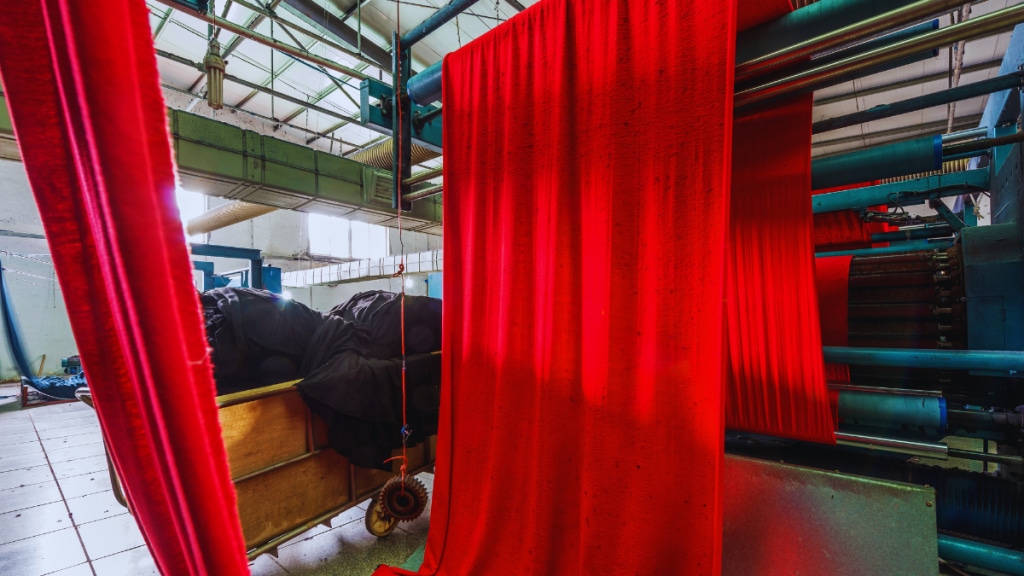At Shingora Textiles, a cloth manufacturing unit situated in an industrial cluster on the outskirts of Ludhiana, a group of workers are at work. They are handling a large weaving machine that churns out “performance fabrics.” These are materials that go into making clothing items that are resistant to gases, water, and chemicals. There are rows of such machines spread over the massive 200,000 square feet factory area.
One of the supervisors tells this correspondent, the workers are unaware of the problems that their employer is facing at the moment.
Ever since the US has announced a doubling of the additional tariff on India to 50% from 25%, Shingora’s US customers have put their shipments on hold, and asked the company to wait until there’s clarity on the tariff rate. Going by Washington’s current plan, the 50% tariff which includes a punitive levy of 25% for importing oil from Russia will take effect from August 27.
The Indian industry is pinning hopes on the attempts being made to resolve the Russia-Ukraine conflict. On its part, the government of India has made it clear that so long as Russian oil helps it cut the country’s huge energy import bill, imports from Russia can’t stop.
Tariff hike stalls shipments, squeezes cash flows
Nearly 30% of the textile units in Ludhiana have exposure to the US market. Like Shingora, many other companies in this town have been asked to put their shipments on hold.
Amit Jain, managing director of Shingora Textiles told FE even though none of his US customers have cancelled the orders, hoping that some resolution might come before August 27, a pause on shipments has affected his cash flows badly. “My investments have already gone into labour and raw materials. The customer is not going to pay me till he or she gets the goods, so I have become a virtual warehouse,” he said.
Shingora has a three-way exposure to the US, including direct selling to the US offline retailers, indirect exports to the US through tie-ups with global retailers based in Japan, Spain, etc who also have presence in the US. It’s also supplying fashion fabrics to the Indian companies who are exporting to the US customers. “About 35% of the revenues are coming from the US. In the next 15-20 days, I may not fire people. However, after that, I will have to weigh how many people I really need, going forward,” said Jain.
At an aggregate level, textiles and yarn units here have about 30% of their exports going to the US. The main exports items include readymade garments, yarns, terry towels, etc. Sanjay Chawla, additional executive director, Wool & Woollens Export Promotion Council (WWEPC) said that it’s not practical for local companies to operate at 50% tariffs. “In Ludhiana alone, there are over a million people employed in textile-related jobs, with less than 30% of them having direct employment. Nearly 20-25% jobs will be under threat if the situation doesn’t improve in a couple of months,” Chawla said.
Sudarshan Jain, founder of Iris Textiles said that his exposure to the US market was negligible but when Donald Trump imposed 37% tariffs on Bangladesh in April this year – compared to 26% on India – two US-based buyers engaged with him to shift some of their sourcing to India. However, since the US has increased the India tariff – and reduced Bangladesh’s tariffs to 20% – they have backtracked. “We were at an advanced stage of our deal. These retailers had already approved the samples, and prices were also negotiated,” Jain said.
He said that even though the likely cancellation of deals will not impact his 400-strong workforce, it could hamper their earnings. “We usually operate our three factories between April and November. For the remaining months, the employees go to their hometown or engage in other work. If we had got these US orders, the factories would probably be running throughout the year, thereby generating extra wages for the workers,” Jain said.
Industry seeks government support, explores new markets
The companies are now urging the government to enable them to handle the crisis. “While the government is working out a deal with the US, the industry needs to find alternates as well. The government should get the FTA with the UK operationalised soon, and fast-track with the pact with the European Union,” said a textile exporter, on condition of anonymity.
Besides making a plea to the government, many Ludhiana-based units have started exploring alternate export destinations to sell their products. “Following the tariff announcements, we have planned exhibitions in France and Australia,” said WWEPC’s Chawla.

